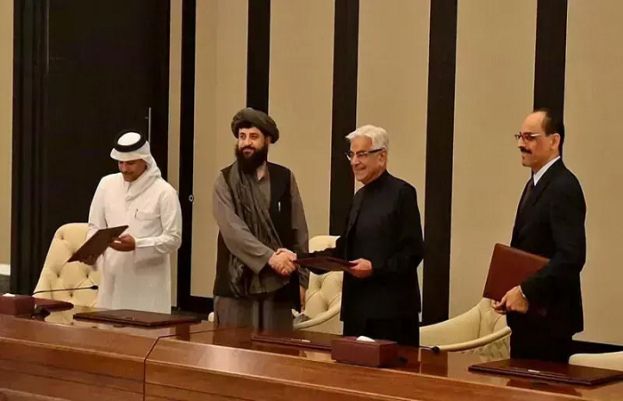Pakistan and the Afghan Taliban regime have agreed to maintain the ceasefire following a fresh round of talks in Istanbul, Turkey’s foreign ministry confirmed late Thursday. A joint statement on the talks, mediated by Turkey and Qatar, said: “Further modalities of implementation will be discussed and decided in a principal-level meeting in Istanbul on 6 November 2025.” The talks, held from October 25-30, aimed to strengthen the ceasefire initially agreed upon by Pakistan and Afghanistan in Doha on October 18-19. “All parties have agreed to establish a monitoring and verification mechanism to ensure peace and impose penalties on any violating party,” the statement added. The mediators expressed appreciation for the constructive engagement of both sides and reaffirmed their commitment to supporting lasting peace and stability. Reacting to the development, Information Minister Attaullah Tarar said, “We hope terrorist actions will no longer take place.” He emphasized that the Taliban must ensure Afghan territory is not used against Pakistan and noted that penalties would be imposed for any violation of the ceasefire. The ceasefire also includes Taliban operations against groups like Fitna al-Khawarij, he added, and Pakistan will have a forum to present evidence of cross-border terrorism. Decisions regarding the reopening of the Pakistan-Afghanistan border will be taken later. Minister of State for Interior Talal Chaudhry warned that the Taliban regime must not act as a proxy for India, cautioning that such alignment could undermine Kabul’s sovereignty. He reaffirmed Pakistan’s principled stance and expressed hope for positive progress in negotiations. The ministers described the latest extension of the ceasefire as a victory for Pakistan’s principled approach, emphasizing that peace and national security are non-negotiable. Tarar added that India cannot guarantee Afghanistan’s security. The Istanbul talks followed a breakdown in earlier discussions when the Taliban refused to provide verifiable guarantees that groups such as the TTP would not use Afghan territory to launch attacks on Pakistan. Despite Pakistan presenting evidence-backed counterterrorism demands, the earlier talks had concluded without progress. Pakistan resumed negotiations at the request of Turkey and Qatar, giving the peace process another chance while urging Kabul to act against militants using Afghan soil as a safe haven. A source close to the Taliban delegation indicated that most issues had been resolved peacefully, but a few Pakistani demands required more time due to their complexity. Defence Minister Khawaja Muhammad Asif noted that while the talks did not yet produce a major breakthrough, progress would depend on Kabul’s willingness to cooperate under the guidance of Turkey and Qatar. He warned that any attempts to destabilize Pakistan would be met decisively and said Pakistan welcomes a positive role from Kabul, but will act if the Taliban remain obstinate or serve as India’s proxy. Islamabad-Kabul tensions Pakistan has been grappling with rising terror incidents, particularly in KP and Balochistan, since the Afghan Taliban regime took power in 2021. The government has repeatedly urged the Taliban regime to rein in terrorist groups responsible for countless attacks in Pakistan. However, the Taliban regime largely remained indifferent to Pakistan’s demands and provided refuge to multiple terrorist groups targeting security forces and civilians. Instead of addressing Pakistan’s concerns about cross-border terrorism, the Taliban regime resorted to unprovoked firing along the border on October 12. Pakistan Armed Forces retaliated swiftly, killing over 200 Taliban fighters and affiliated militants; however, as many as 23 Pakistani soldiers were martyred during the border clashes. Security forces also conducted strikes inside Afghanistan, including in Kabul, destroying terrorists’ hideouts in the country. Hostilities between forces of the two nations ceased after Pakistan accepted the Taliban regime’s request for a temporary ceasefire on October 17. Delegations from the two countries later met for talks mediated by Qatar in Doha, where they agreed on a ceasefire agreement. Turkiye then hosted the second round of talks in Istanbul, which began on October 25. However, the talks ended inconclusively after four days over what Pakistani authorities described as the Taliban delegation’s “illogical” arguments, which they said were “detached from ground realities”.
Pakistan, Afghan Taliban reach agreement to continue ceasefire: Turkiye

